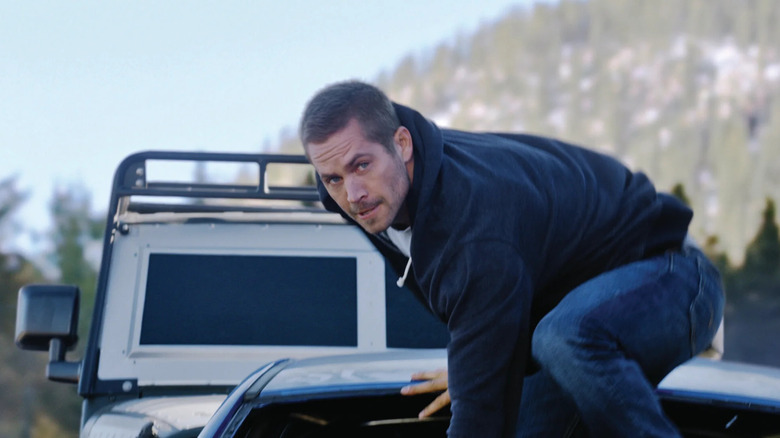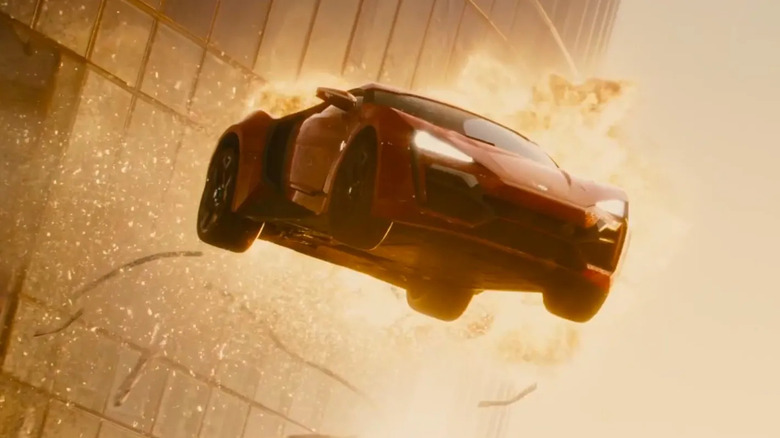Paul Walker's Agents Freaked Out When He First Signed On To Fast And Furious
Although today we think of the "Fast and Furious" movies as a massively successful, popular franchise, it's worth remembering that its roots were fairly humble. The 2001 movie "The Fast and the Furious" was mostly small-scale and self-contained, focusing almost entirely on Paul Walker's Brian, who works as an undercover cop and discovers an unlikely friendship with the noble criminal Dominic Toretto (Vin Diesel). The movie enjoyed a good (but not amazing) box office performance and received less-than-stellar reviews. Odds were, it would probably get one or two sequels max before it faded into irrelevancy.
But even before critics started bashing the movie for being "'Rebel Without a Cause' without a cause," there were still plenty of reasons for the relatively unknown Paul Walker to be concerned about the project. When he first signed onto it in 1998, "The Fast and the Furious" didn't even have a screenplay, and he had to deal with a lot of flak for committing to a script-less venture so quickly. As he explained in a 2013 interview with Entertainment Weekly:
"I'm signing on without a screenplay. My reps are freaking out. I'm like, 'It's a million bucks, I get to hang with friends, drive cars, and be cool.' Honestly, that's all it was to me at that stage of my life. I was 25, 26 years old? F***, let's go do it!"
A bet that took over a decade to fully pay off
While Paul Walker wasn't exactly struggling as an actor after "The Fast and the Furious," the sheer extent of how good a deal this all was took a while to become clear. The movie's sequel, "2 Fast 2 Furious," did fine at the box office but received even more negative reviews than the first. Then there was "Tokyo Drift," the third movie that didn't feature Walker at all, which earned the worst reviews of perhaps the whole series and remains the lowest-grossing entry at the box office to this day. At that point, all signs indicated the franchise was on the outs.
But then came 2009's "Fast & Furious," which took all the seemingly disconnected characters from the first three movies and put them all together. Although this movie also wasn't received well by critics, it did amazing at the box office, and the big ensemble format of the movie turned out to be exactly where this franchise would truly shine. In 2011, 10 years after the first movie premiered, the property scaled even greater heights (critically and financially) with "Fast Five," which expertly served as the ensemble heist/action flick these movies were always supposed to be. The movie was ridiculous, as the internet loves to point out, but this was when the series learned to lean into the absurdity to just the right degree.
From that point forward, the franchise spent another decade releasing some of the most consistently successful blockbusters in Hollywood. Despite Paul Walker's tragic death in the middle of filming "Furious 7," the massive, worldwide impact of the series had already been made clear. It turns out that signing onto that screenplay-less project back in 1998 was a smart choice, despite what his reps might've said at the time.

